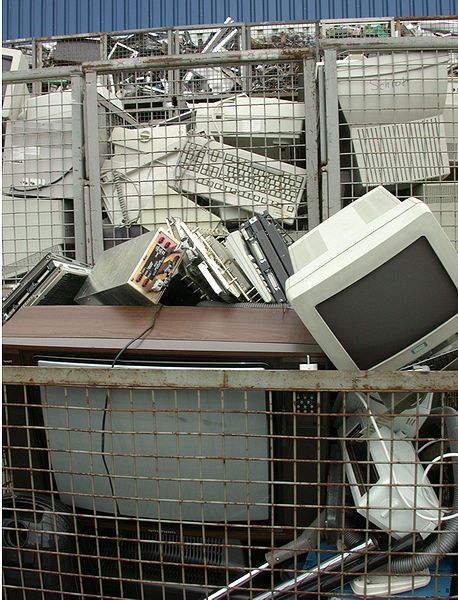Africa’s growing e-waste problem
Between just the five African countries: Benin, Ivory Coast, Ghana, Liberia, and Nigeria, approximately 650,000 to 1,000,000 tonnes of electronic waste is produced annually.

Between just the five African countries: Benin, Ivory Coast, Ghana, Liberia, and Nigeria, approximately 650,000 to 1,000,000 tonnes of electronic waste is produced annually. This is waste that requires careful management to protect the environment and human health. Unfortunately in West Africa’s case it is becoming a growing environmental problem.
United Nations Environment Program (UNEP) Executive Director and UN Under-Secretary General Achim Steiner says, "Effective management of the growing amount of E-waste generated in Africa and other parts of the world is an important part of the transition towards a low-carbon, resource-efficient Green Economy. We can grow Africa’s economies, generate decent employment and safeguard the environment by supporting sustainable E-waste management and recovering the valuable metals and other resources locked inside products that end up as E-waste. In the run-up to Rio+20 in June, this report shows how measures such as improved collection strategies and establishing more formal recycling structures, can limit environmental damage and provide economic opportunities".
The quantity of electronic and electrical equipment in Africa is growing at a staggering rate, with a 10 factor increase in personal computer use in the last decade and a 100 factor increase in mobile phone subscribers. The effect on the environment can be huge, with heavy metals in these products entering the natural environment following dumping. Even during the recovery of plastic and copper through burning, various hazardous substances can be released into the environment. In particular, dioxins released can move up the food chain and reach a wide area, especially after open burning.
In a continent such as Africa, the various small quantities of precious metals, including indium, palladium, copper and gold are all seen as an opportunity to make money. This can often lead to unregulated work, including child labour on the scrap sites, with resulting health problems associated with their work. The value of these waste products can also lead to a growing electrical refurbishment industry however, which can help reduce waste and lessen the strain on scare natural resources.
The quantity and scale of Africa’s e-waste problem is considerably larger than one might expect, and this is being exacerbated to some extent by the import of predominantly used electrical and electronic products from developed nations. In West Africa’s case this is mostly from the UK, France and Germany; Europe has been found to be sending approximately 75% of the used appliances to the continent. Sadly in some countries, such as Benin and the Ivory Coast, much of the imported electronics are non-functional, meaning they end up exacerbating the environmental problems.
Big steps need to be taken to deal with the huge volumes of electrical and electronic waste being produced in Africa. The continent simply does not have the resources to deal with the situation and therefore intervention from the developed world is essential in order to prevent an environmental disaster.


